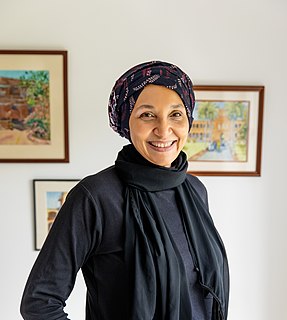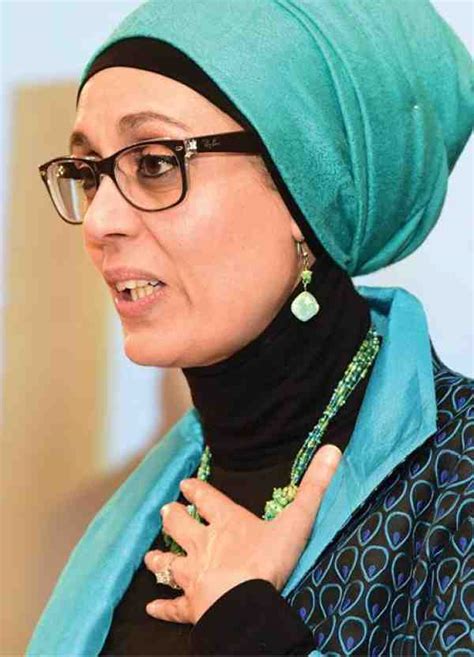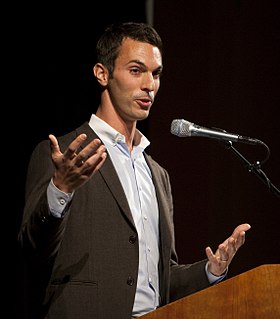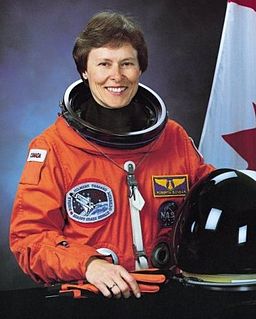A Quote by Leila Aboulela
When you write about a Muslim woman, like I did with my previous novels - 'Minaret', for example, which is about a woman who starts to wear the hijab - it sets all the alarm bells ringing.
Related Quotes
The hijab or a variation of the word shows up eight times in the Quran. And it never means headscarf. And so what's happened is that the identity of a Muslim woman especially is being equated to this piece of cloth on her head. And in that ideology there's a very fundamental assumption that people need to think very deeply about, which is do you believe that a woman is too sexy for her hair?
Flying while Muslim is nerve-racking in itself. Every time I prepare to fly, I have to make sure the anxiety I feel from all the stares I get from the moment I walk into the airport doesn't show on my face. This is what every woman in a hijab or bearded Muslim man experiences. But we are not alone: Sikh men who wear a turban experience the same anxiety because they encounter Islamophobia by dint of being perceived as Muslim.
I was born in 1965. When I grew up in India, there was no expectation that a good Muslim woman wore the headscarf. But what happened when I came here to the U.S. and the emergence of the Saudi and Iranian theologies in the world is that the headscarf became the hijab and the hijab is now the idea that is synonymous with headscarf.
I think it's dangerous to look at every Muslim woman the same and to assume that every experience within the religion is the same, meaning that there are going to be strong and assertive women that are Muslim. There's going to be a more passive woman who just so happens to be a Muslim. There may be a funny, big-personality woman and she's Muslim.
I wanted Bow's hair and makeup and clothing to look like a woman who has four children, a career, and a full life. For example, she won't wear eyeshadow unless she's going out. Because it takes a lot of time to put eyeshadow on. She's a woman who has style, but it's all about functionality - she grabs stuff from her closet.
Going to space was a moment that people think was my Mount Everest, but it's not. I have so many Mount Everests. This just happens to be one of them. It has changed the way I approach things. I realize it's not about me; it's about what I did and about the person we had as a Canadian woman in space. I look at pictures of myself and say, 'That's the woman who did it'.




































